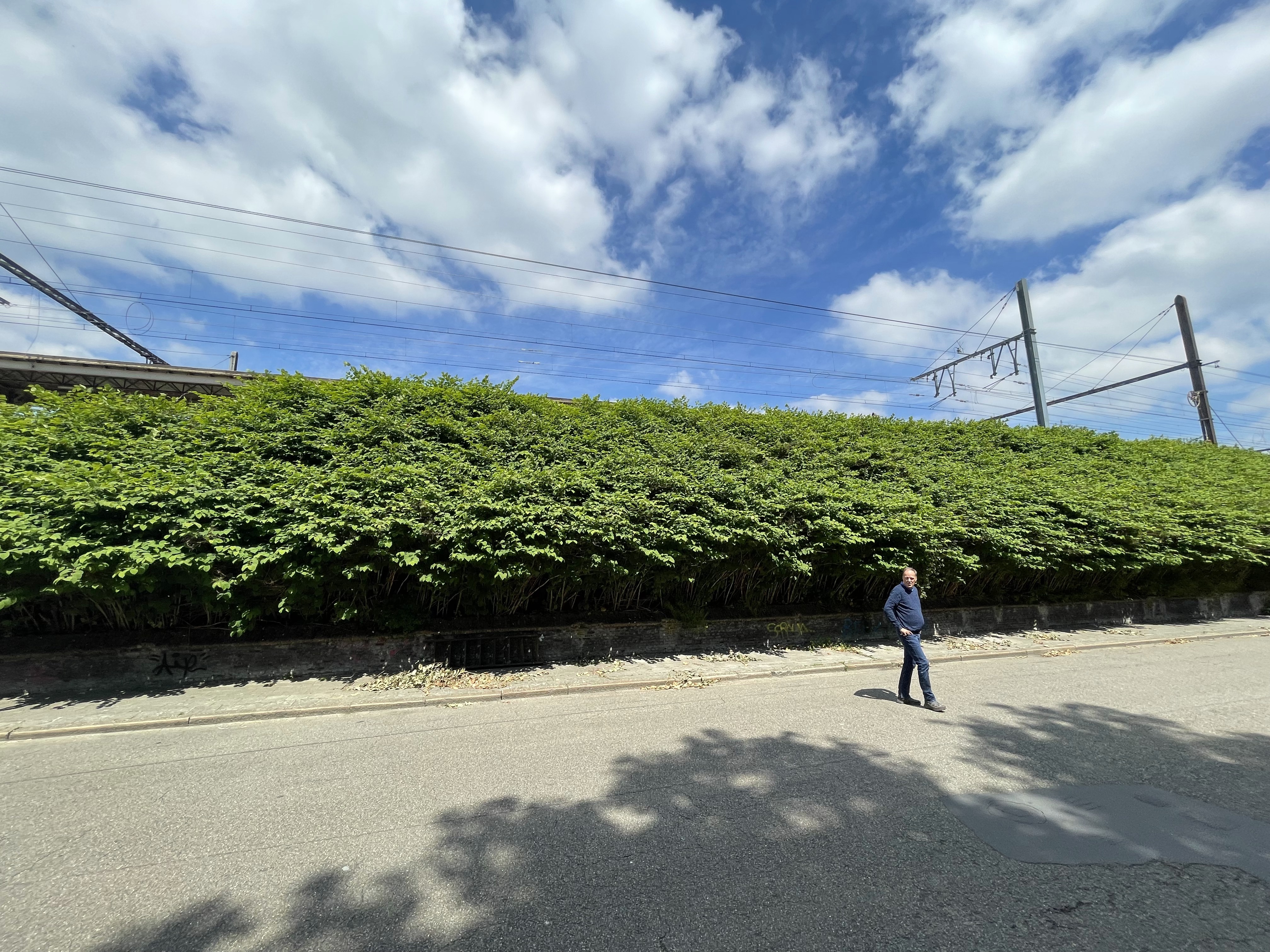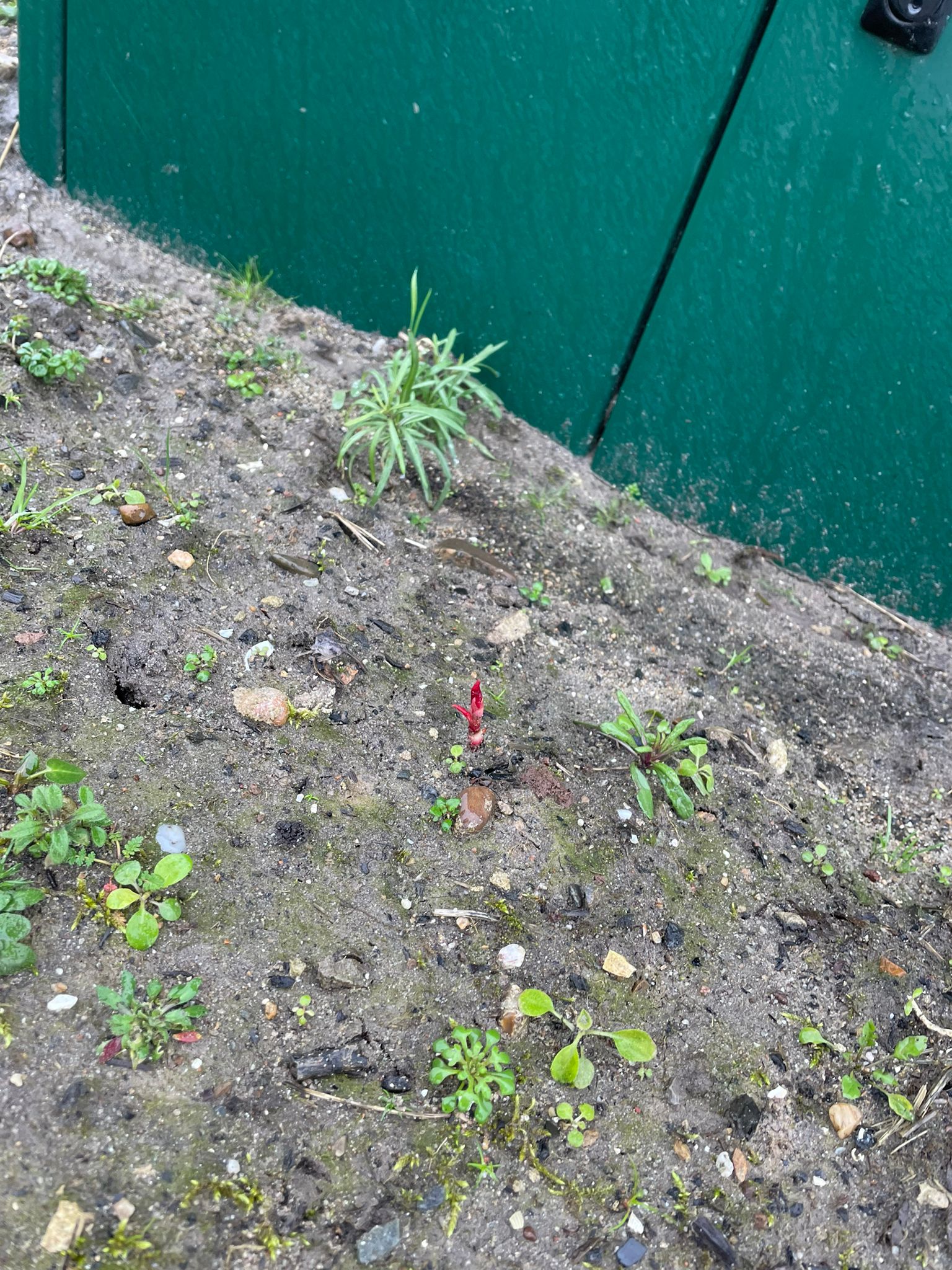First shoots above ground
At the time of writing in February 2023, Japanese knotweed has already appeared above ground in several places in the Netherlands! Clearly a month earlier than last year.
Japanese knotweed is an invasive plant species that spreads rapidly and affects the biodiversity of ecosystems. It is therefore worrying that this plant is starting to sprout again early in the year.
Japanese knotweed is a hardy plant species native to East Asia. The plant is known for its vigorous root system and rapid growth, which causes it to overgrow other plants and trees and threaten local flora and fauna. In addition, its root system can cause damage to buildings, roads and other infrastructure.
Not surprisingly, the early sprouting of Japanese knotweed is a cause of concern for conservationists and managers of public spaces. This is because early sprouting means that the plant has an advantage over other plant species, which increases its chances of spreading.
To combat the spread of Japanese knotweed, it is important to identify and remove the plant in good time. This is best done before the plant starts to grow and spread further. It is therefore important that managers of public land and conservationists remain vigilant and act quickly when Japanese knotweed is discovered.
It is also important to make the public aware of the dangers of this plant and inform them about how they can help stop its spread.
The early spread of Japanese knotweed is of concern to conservationists and managers of public lands. It is important to be vigilant and act quickly when this invasive exotic is discovered. In addition, public awareness and education is crucial to combat the spread of Japanese knotweed.
Completely control Japanese knotweed with a single treatment? Read more about the Roots Reset method here.
Japanese knotweed is an invasive plant species that spreads rapidly and affects the biodiversity of ecosystems. It is therefore worrying that this plant is starting to sprout again early in the year.
Japanese knotweed is a hardy plant species native to East Asia. The plant is known for its vigorous root system and rapid growth, which causes it to overgrow other plants and trees and threaten local flora and fauna. In addition, its root system can cause damage to buildings, roads and other infrastructure.
Not surprisingly, the early sprouting of Japanese knotweed is a cause of concern for conservationists and managers of public spaces. This is because early sprouting means that the plant has an advantage over other plant species, which increases its chances of spreading.
To combat the spread of Japanese knotweed, it is important to identify and remove the plant in good time. This is best done before the plant starts to grow and spread further. It is therefore important that managers of public land and conservationists remain vigilant and act quickly when Japanese knotweed is discovered.
It is also important to make the public aware of the dangers of this plant and inform them about how they can help stop its spread.
The early spread of Japanese knotweed is of concern to conservationists and managers of public lands. It is important to be vigilant and act quickly when this invasive exotic is discovered. In addition, public awareness and education is crucial to combat the spread of Japanese knotweed.
Completely control Japanese knotweed with a single treatment? Read more about the Roots Reset method here.


Do you need advice on timely control of Japanese knotweed? Please contact us.